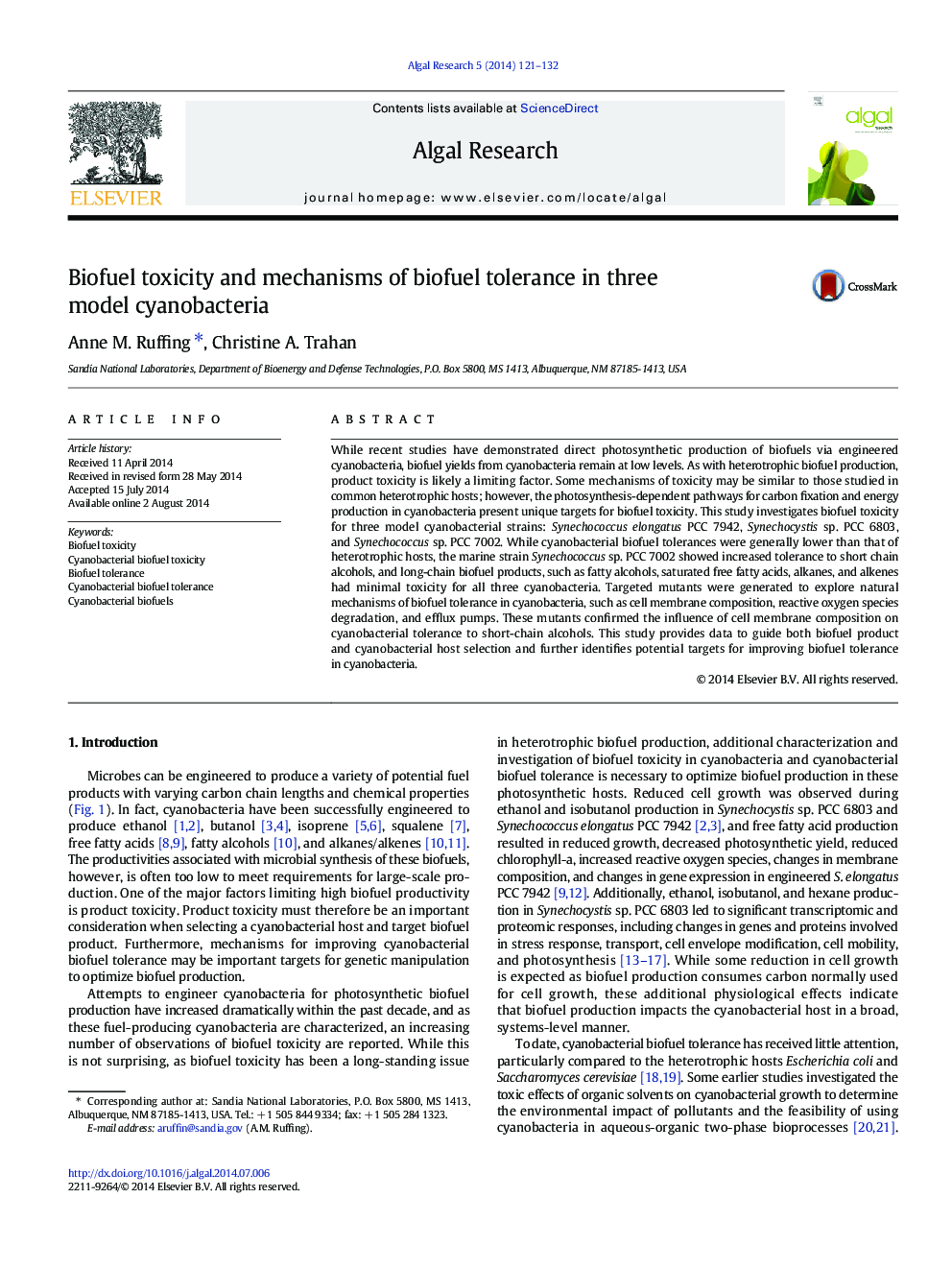| Article ID | Journal | Published Year | Pages | File Type |
|---|---|---|---|---|
| 1742080 | Algal Research | 2014 | 12 Pages |
•Synechococcus sp. PCC 7002 has increased tolerance to short chain alcohols.•Long-chain biofuel products have minimal toxicity for cyanobacteria.•Fatty acid desaturation is important for cyanobacterial ethanol tolerance.
While recent studies have demonstrated direct photosynthetic production of biofuels via engineered cyanobacteria, biofuel yields from cyanobacteria remain at low levels. As with heterotrophic biofuel production, product toxicity is likely a limiting factor. Some mechanisms of toxicity may be similar to those studied in common heterotrophic hosts; however, the photosynthesis-dependent pathways for carbon fixation and energy production in cyanobacteria present unique targets for biofuel toxicity. This study investigates biofuel toxicity for three model cyanobacterial strains: Synechococcus elongatus PCC 7942, Synechocystis sp. PCC 6803, and Synechococcus sp. PCC 7002. While cyanobacterial biofuel tolerances were generally lower than that of heterotrophic hosts, the marine strain Synechococcus sp. PCC 7002 showed increased tolerance to short chain alcohols, and long-chain biofuel products, such as fatty alcohols, saturated free fatty acids, alkanes, and alkenes had minimal toxicity for all three cyanobacteria. Targeted mutants were generated to explore natural mechanisms of biofuel tolerance in cyanobacteria, such as cell membrane composition, reactive oxygen species degradation, and efflux pumps. These mutants confirmed the influence of cell membrane composition on cyanobacterial tolerance to short-chain alcohols. This study provides data to guide both biofuel product and cyanobacterial host selection and further identifies potential targets for improving biofuel tolerance in cyanobacteria.
